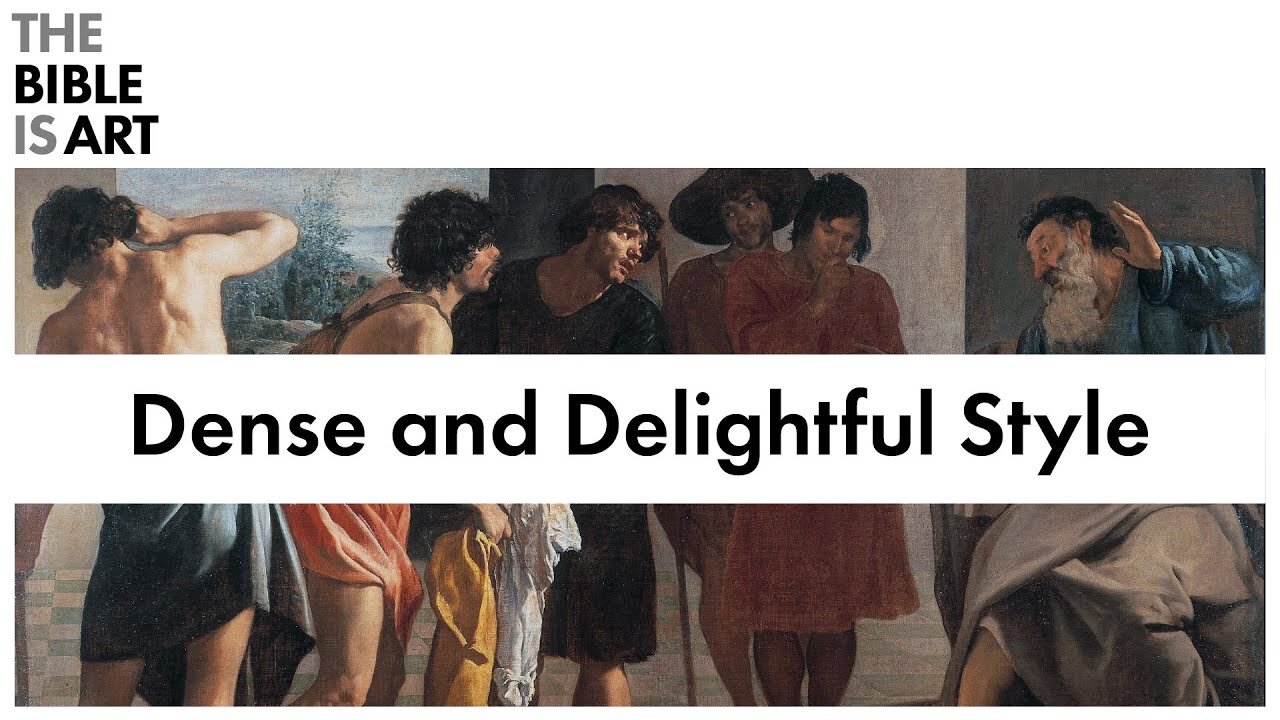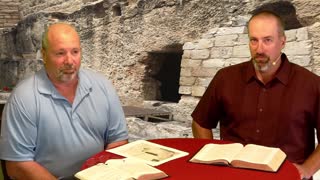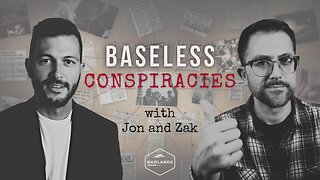Premium Only Content

The Density & Delight of Biblical Style
In this video I look at the dense style of biblical authors and show how rich it can be with 1 verse: Genesis 37:2.
Support the Channel: https://www.patreon.com/thebibleisart
Website: https://www.thebibleisart.com
Email: thisdivineart@gmail.com
Twitter: @johnbhiggins
| How to Learn to Read the Bible as Literary Art |
Reading Biblical Narrative: An Introductory Guide (https://amzn.to/30LzaRa)
Narrative Art in the Bible (https://amzn.to/30RVGIb)
The Art of Biblical Narrative (https://amzn.to/3aDrIfk)
Old Testament Narrative: A Guide to Interpretation (https://amzn.to/38rcE2C)
The Poetics of Biblical Narrative (https://amzn.to/2Gh4cqE)
| Literary Structure |
Literary Structure of the Old Testament (https://amzn.to/30Jdm8X)
Style And Structure In Biblical Hebrew Narrative (https://amzn.to/2RDTTlQ)
| Genesis |
Creation: The Story of Beginnings - Grossman (https://amzn.to/2GlPwq9)
Abram to Abraham: A Literary Analysis of the Abraham Narrative - Grossman (https://amzn.to/2v7id7Z)
Narrative Art in Genesis - Fokkelman (https://amzn.to/2ulmd4t)
A Commentary on the Book of Genesis (Part I) - Cassuto (https://amzn.to/2NOAhdt)
A Commentary on the Book of Genesis (Part II) - Cassuto (https://amzn.to/2Gcuk6d)
Genesis: A Commentary - Waltke (https://amzn.to/2vaBvt7)
The Gospel of Genesis: Studies in Protology and Eschatology - Gage (https://amzn.to/2RGjRFo)
Abraham and All the Families of the Earth: A Commentary on the Book of Genesis 12-50 - Janzen (https://amzn.to/2TVyCqJ)
Genesis 1-15, Volume 1 - Wenham (https://amzn.to/2TQnYRO)
Genesis 16-50, Volume 2 - Wenham (https://amzn.to/3aDY21J)
| Transcription |
Welcome back to the Bible is Art where we explore the literary artistry of the Bible and this week we’re talking about the dense style of biblical narrators’ as well as the sophistication you can achieve in one verse.
Let me read to you two different styles of storytelling. First, Thomas Hardy from his book Under the Greenwood Tree. This is the first sentence:
To dwellers in a wood almost every species of tree has its voice as well as its feature. At the passing of the breeze the fir-trees sob and moan no less distinctly than they rock; the holly whistles as it battles with itself; the ash hisses amid its quiverings; the beech rustles while its flat boughs rise and fall. And winter, which modifies the note of such trees as shed their leaves, does not destroy its individuality. (Thomas Hardy,)
And this is one of the first sentences from the Joseph story, “Joseph, being seventeen years old, was pasturing the flock with his brothers.”
Notice the difference? The biblical narrators are sparse, not florid, unadorned, but dense, dense with meaning and symbolism, dense with details that will be apropos, important to the story.
Much of modern literature invests a lot of time in describing scenes and physical characteristics of characters. The biblical narrator, by contrast, very rarely includes those details, and when he does include details, it will always have a plot function, it will be important in the story.
Let me explain the beauty of this dense style with the text we just read from the Joseph story. Now, you may have not thought much of it when I first read it, but in one sentence the author crams four pieces of plot significant information.
First, we’re introduced to the main character, Joseph.
Second, we’re told his age and thus maturity, “seventeen.” And there is a subtle irony here, Joseph bears a symbolically perfect age, 7+10, but he is not perfect. This will mirror the fact that he has a favored relationship with his father but does not know how to handle that privilege. Later in the story after God has matured Joseph, the narrator will mark his age again, 13 years later, 13 years of discipleship, through slavery and prison.
Third, we’re told his vocation, “pasturing the flock.” This, of course, is his training for his final vocation, pasturing people as second in command in Egypt. But here, he is unable to pasturing well with his brothers. By the end of the story he will have been trained to pasture with them and others well. He will rise not to first in command in Egypt but to second, and he can do that skillfully. He will also learn to care for his brothers and not bring bad reports about them and gloat in his blessings, but using his blessings to feed the world.
And fourth, in that first sentence we are introduced the conflict in both form and content. We are introduced to the antagonists: the brothers. And our author ingeniously implies their conflict by semantically separating them as far as possible in the sentence. Listen to the sentence again, “Joseph, being seventeen years old, was pasturing the flock with his brothers.” Joseph is the first word and “the brothers” are the last words. They are separate semantically because they are separate relationally and they will be separated physically for a good portion of the story.
-
 2:31
2:31
oldpathschristianministries
3 years agoDensity
34 -
 5:25
5:25
BibleIssues
3 years agoBiblical Contradictions- Michal’s Sons
401 -
 26:41
26:41
FishermansParadise
3 years agoThe Biblical Garden Tomb
20 -
 8:22
8:22
Rethinking the Dollar
15 hours agoSilver vs CBDCs: The Battle for Financial Freedom
1.55K -
 55:15
55:15
MTNTOUGH Fitness Lab
16 hours agoTJ Dillashaw: Embracing Fear as a Privilege | MTNPOD #112
1.88K1 -
 12:24
12:24
T-SPLY
21 hours agoKamala’s COMEBACK FLOPS as Dems DITCH Her!
1.85K5 -
 47:42
47:42
Steph & Kayls
20 hours agoReflecting On How Being Spicy Creators Changed Our Relationship, Life And Bank Account | Ep. 2
1.91K4 -
 7:03
7:03
DropItLikeItsScott
22 hours agoFosTech Drone Predator Pistol Suppressed
2.04K -
 3:31:01
3:31:01
FreshandFit
10 hours agoAfter Hours w/ Dan Cates
105K136 -
 1:37:17
1:37:17
Badlands Media
10 hours agoBaseless Conspiracies Ep. 128: The Accelerationist Cults Grooming Kids into Terrorism with BX
137K45